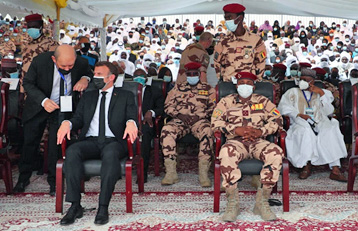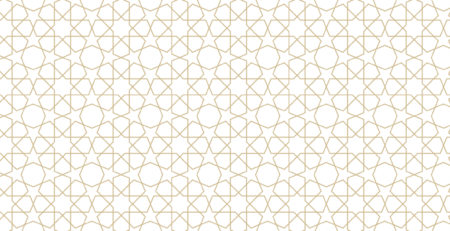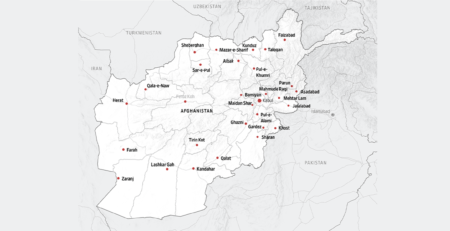Hazem Salem: Syriafication of Egypt
1: History Being Repeated
“Structures are always similar in their main features, but they always vary in the delicate details to give some flavor to the acts of history when it repeats itself; yet, every time, it is repeated with many new twists”.
It was once said that Tunisia is not Egypt; claiming that the revolution in Tunisia cannot reach or take place in Egypt. The assumption of the fool is always to build an argument based on detailed differences and ignoring the most shocking and alarming similarities. Egypt was another Tunisia after all as it witnessed a revolution on January 25th, 2011.
Celebrating Assad’s troops fearless killing of all Syrians, it was said that Syria is not going to be another Arab Sprig country. It was claimed that “Assad has managed to impose his will on the leaders of the world”. To the surprise of many, this was the opinion of Olivier Roy expressed in February 2012 when speaking to France 2 channel. Such arguments would have remained true and could have become completely true if one could claim that Bashar Al Assad – who continued to use aggressive military force against his people for more than two and half years – will succeed in what Gaddafi tried to do in Libya in six months of fighting before he was killed.
Now, it is said that Egypt is not Syria; yet, who could be sure that the acts, procedures and mode of handling the opposition by the regime in Syria are not being cloned in Egypt by Abdel Fattah El Sisi. Who could be sure that the disaster in Syria will not be repeated in Egypt against the Brotherhood, the Islamists and consequently the whole society in the same way where the situation escalated in Syria between Bashar and the rest of the non-Baathist Syrians in their different colors?
Syria did not and does not need a Coup or a Counter-Revolution like Egypt now. This is for a simple reason; the regime of Assad still stands and the man on the top of it feels secure against any genuine western, European or American, attempt to remove him from office. El Sisi just thinks the same. He thinks that the more he becomes similar to Bashar Al Assad in everything, the more he would become immune against any act against him by the West. He believed that he would be everlasting in office as long as the Westerners will eventually absorb the shock of the Coup and start dealing with him when he becomes officially and democratically elected as President (of course, the Mubarak way and not the Morsi way).
Again, the ascendance of El Sisi to power, though being denied in a shy way every now and then, would be definitely associated with enormous unrest. For El Sisi and his supporters, they would say: “OK, so what… or why not… We can live with that. Anyway, the situation has always been like that under Mubarak, and Mubarak ruled for 30 years and the two Assads (junior and senior) also ruled like this for 50 years”; this is how El Sisi thinks as he steps gently towards the presidency.
This might also explain the campaign against the attempt Sami Anan to promote himself as a candidate for presidency. Anan enjoys being from the military as a start, being not directly related to the Coup of July 3rd 2013, more likely to be accepted by the US compared to El Sisi, more capable to reason and negotiate with the Brotherhood as he accepted Morsi in power when he and Tantawi were in office as well as being old enough not to attempt to stick to power forever.
The campaign against Anan came from the radical pro El Sisi journalists and was associated with accusations regarding his role in allowing Morsi to assume office in the first place against the military competing candidate Ahmed Shafiq (though Anan is said to have congratulated Shafiq for winning the elections before the final results were announced).
Never-the-less, the fact stands that El Sisi believes that Egypt is predestined for a military ruler like Nasser, Assad and him, and that this is the nature of things (which was only interrupted between January 25, 2011 and July 3, 2013, i.e. only for two and half years).
For the Brotherhood, they see El Sisi as another clone of Nasser 1954 and 1965 and another Hafez Al Assad 1982. Still, could not one wonder if these two Nasserist experiences against the Muslim Brotherhood were inspiring to Assad senior in 1982 and Assad Junior afterwards against this misfortunate group?
Could one be certain that the former and latter Assad both have inspired El Sisi that this is the way to deal with the Brotherhood; or that this mode of warring against a democratic revolution should have been the solution in the first place, assuming that doing things “the Assad way “might have had Bin Ali, Mubarak, Gaddafi and Ali Abdullah Saleh remaining in office and keeping their regimes intact only if each of them managed to resist the western pressures to democratize, instead of leaning to the revolutionary storm and having to leave office in the end?
The Assad argument would be that these leaders (who are the victims of the western acceptance and even support to the Arab Spring) could not stay in power because none of them was lucky enough to put his son in office as Hafez Al Assad did.
So, it would be like: “do it the Syrian way Sisi”… as El Sisi hears and feels the signs coming from Syria; i.e. go for the “Syriafication of Egypt” if you wish to continue in power. This Syriafication was again imposed in Egypt with the latest court verdict that is banning the Muslim Brotherhood association, group, organization and consequently the Freedom and Justice Party. Though comparably less in intensity, this verdict is rather similar to the Baathist “Law 45” that decides the execution of every member of the Muslim Brotherhood in Syria.
2: Saudification of Arab Spring
For Saudi Arabia, it wanted Gaddafi down and it wants the Syrian regime out, but it accepted bitterly the removal of Bin Ali (who went to Saudi Arabia), Mubarak (to whom Saudi Arabia brought all its political and financial might to bring back his regime), as well as that of Ali Saleh (who was saved and also sacrificed by the Gulf Initiative, and he always have had an open invitation to stay in Saudi Arabia if he has to leave Yemen).
Consequently, Saudi Arabia has contradictory agendas with El Sisi and the new Egyptian regime regarding Syria. The Saudi concern about Iran and the Shiite style revolutionary discourse makes it fully keen to get rid of Bashar regime. The position of El Sisi regime towards Syria is completely supportive. It was even said that the Army decided to get rid of Morsi as soon as possible and to give him no chance at all after he declared serving relations with the Syrian regime in a massive popular gathering in the stadium. Still, Saudi Arabia has a sort of a unified and agreed upon agenda with both Abdel Fattah El Sisi and Bashar Assad regarding their campaigns against the Islamists, whether Brotherhood or others. Astonishing for the first glimpse, yes, but some ideology and strategy analysis can solve the mystery.
Saudi Arabia is by default against the Islamization taking place through the Brotherhood in various parts of the Arab World. Saudi Arabia also stands against the nationalist Nasserist and Baathist ideology. It stands against the revolutionary Shiite ideology that attempts to spread to the Shiite parts of the Arabian Peninsula, whether in Bahrain, Yemen, Kuwait, Emirates or even in the Shiite eastern parts of the Saudi Kingdom. Therefore, it can live with a process of Syriafication of Egypt in the way that restores the regime of Mubarak.
Still, will Saudi Arabia be able to live with or bear the full consequences and the aggravating implications of the Syriafication of Egypt? Will Saudi Arabia be able to stand the militarization of the situation in Egypt between the new Saudi-supported and sort of Saudi-sponsored regime and the Islamist opposition when the Syriafication of Egypt goes to a higher horizon? These are the tough questions that come to mind especially after the huge step to escalate against the Brotherhood by the judicial verdict of the Egyptian court issued on September 23, 2013 that is banning the Muslim Brotherhood and consequently the Freedom and Justice Party.
Therefore, under a Saudi political and religious influence, the Sheikh of Al Azhar, Ahmed El Tayyib and the spiritual reference to Al Noor Party, Sheikh Yasser Burhami will become very close to one another (both as friendly spokespersons for the Saudi interests in two different languages), and they would be representing something similar to late Sheikh Saeed Ramadan Al Bouty, Sheikh Ahmed Hassoun and other loyal clergy in Syria.
Syria’s Islamization that took place and that affected a wide segment of its revolution, ranging from some key elements of the Free Syrian Army till the other extreme in the spectrum represented by Jabhat al Nusrah, will be contained later on to look like a Saudi Islamic model ranging from the liberal Sunni Sheikh Saad al Hariri (when Saudi business starts to come to post Assad Sunni Islamic Syria) till another Madkhali Burhami-style discourse emerges representing Saudi Salafism and spreading itself all over the country to justify the new regime. Earlier, there has been a deliberate campaign for spreading a Saudi version of Takfiri Salafism against the Alawides, the Shiites and the non-Muslims to end Assad’s regime and its secular Pan-Arab and Alawi Shiite religious alliance. After the anticipated fall of Bashar Al Assad, the next steps by Saudi Arabia would involve strong Saudi Madkhali discourse to shape the political orientation of Sunni Islam in Syria. This would not go without tension with the other more radically politicized Islamist discourses.
To the surprise of many, the same Saudi Islamization that aims to contain and “Saudify” the Egyptian revolution has begun and will continue to take place. It could be spotted in the controversial video of the former Mufti, Ali Gomaa, the Azharite Sheikh Salem Abdel Geleil as well as the liberal modern breaching star Amr Khaled. They tried to build their own Madkhali argument against the Muslim Brotherhood who are to be labeled as “Khawarej” (who are enemies of the Muslim nation) to justify – religious-wise – killing them by El Sisi troops.
In short, the Saudification of Arab Spring is taking place – with different modes – in Egypt and Syria. It is also helping – for the time being – the Syriafication of Egypt to fulfill the goals of this particular Coup and counter-revolutionary moment.
3: El Sisi Restructuring the Scene to Play Egypt the Syrian Way
At this moment, the structures of Al Assad and El Sisi regimes look so much similar in Syria and Egypt regarding the existence of two regimes led by military leaders with a unilateral vision and an entourage of a narrow oligarchy praising the inspired exceptional leader. Having a radical regime that is authoritarian, militarized, police oriented, based on traditional pan Arabism and Nasserism as well as a closed military ideological skepticism alerted against everyone and everything and smelling a “conspiracy” all over the place, is the common dominator of the two cases till now.
That is why Syriafication of Egypt goes through and makes its way as El Sisi regime is becoming more and more similar in many strategies and tactics to that of Al Assad. The underlying reason is that El Sisi is restructuring the scene to play Egypt in “the Syrian way”.
Assad’s survival from an American strike must have been impressive for El Sisi, assuring him that his move (the coup) will succeed and sustain its power. Also, Assad’s survival of the strike is assuring el Sisi that the empty words of the westerners will end up by recognizing the status quo and trying to use it to secure the western interests.
When Olivier Roy once said that Assad has managed to impose his will on the leaders of the world, he was right. Similarly, El Sisi believes that he can impose his will and extend deep roots for his regime in the global political environment.
Still, Egypt’s Mubarak never had WMD’s to give up, while Assad will give up his chemical weapons to stay in power. The Egyptian Sisi will learn the lesson, and thus, he will threaten to attempt (or will actually attempt) to acquire some WMD’s to bargain with them in case of need. The issue of acquiring acceptance (i.e. gaining legitimacy) is the main goal of El Sisi regime. It is trying to buy such acceptance (legitimacy) at any price.
For El Sisi, challenging the internal opposition and the external political environment will continue to be the target as long as it would buy more populist legitimacy. It is also a way to show El Sisi as the charismatic savior and entrenching the presence of the Army as the sole decision maker in the political scene. The Nasserists are eventually continuing to play for El Sisi the tune of support in a way that is not much different from the way the Baath Party has been celebrating Bashar Al Assad. The new military regime could even go towards threatening the West by saying: “We could cancel the peace treaty with Israel if you do not submit to us and accept the new de facto political setting!”
So far, Syria is the only successful example for suppressing the Arab Spring so as there would be no need for a counter revolution and a military coup, and thus, the Syrian model will be cloned in Egypt to support the existing coup and sustain the counter revolution. Bearing this in mind, the question remains: What to do against this coup? The only answer remains “peaceful protests”. Yet, till when will this last? And what is the alternative when such strategy fails? Logically and realistically, the alternative would be nothing but resorting to violence, then to using arms and engaging in a civil war. This is what could be called “Syriafication” no more no less.
Due to this, the situation is becoming very sectarian and rather religious-oriented between the Sisiwides (similar to Bashar Alawides) and the majority of Egyptians (some Islamists and some secularists). The Sisiwides will claim that their black horse or their little pony (their Sisi) is actually a “Lion” (an Assad) that will eat his opponents. Giving El Sisi a sort of a holy earthly character (the way Nasser was portrayed by some people in his time) is making things loaded with an inter-Islamic sectarian tension; inviting for a confrontation of religious interpretations between that of the “Alliance Supporting Legitimacy and Rejecting the Coup” and the opposing Islamic religious discourse initiated by Sheikh Ahmed El Tayyib and Ali Gomaa as well as others.
The sequence of events in Egypt is taking place similar to the major landmark developments and turns of the Syrian revolution. Since July 3, 2013 till today, things started in Egypt by protests against the “military rule”, evolving into clashes and violent military suppression to these protests. The next step was the huge massacres against protesters; those taking place in Syria very often are not at all different from what happened in Rabaa Al Adaweyya.
Similarly, the media supporting the coup since July 3, 2013 is not much different from that of Bashar Al Assad regarding how it portrays the opposition and how it calls these cycles of violent suppression (or even the massacres) as a war against terrorism and a confrontation of a conspiracy against the nation.
As the situation in Syria started to shift towards the resolution to arms, the Egyptian case witnessed open scale armed confrontations starting with Sinai and spilling over to the Suez Canal area in sporadic cases in Port Said, Ismailia and Suez. With the continuation of the suppression and fighting, one might expect more open defections in the Army (maybe before starting the Free Egyptian Army as some people call for this), as the news whisper about the arrest of soldiers and officers who refused to shoot the demonstrators and the protesters in the sit-ins of Rabaa and Nahda. Moreover, with the banning of the Brotherhood and the acceleration of the man-hunt against its members and its supporters, one is now witnessing the huge exodus of the Egyptian opposition to take refuge in Istanbul (maybe to form the Egyptian Coalition similar to the Syrian one).
The historical question now is: Can any of us help in saving Egypt from the absolutely eminent and nearly fulfilled “Syriafication”?












